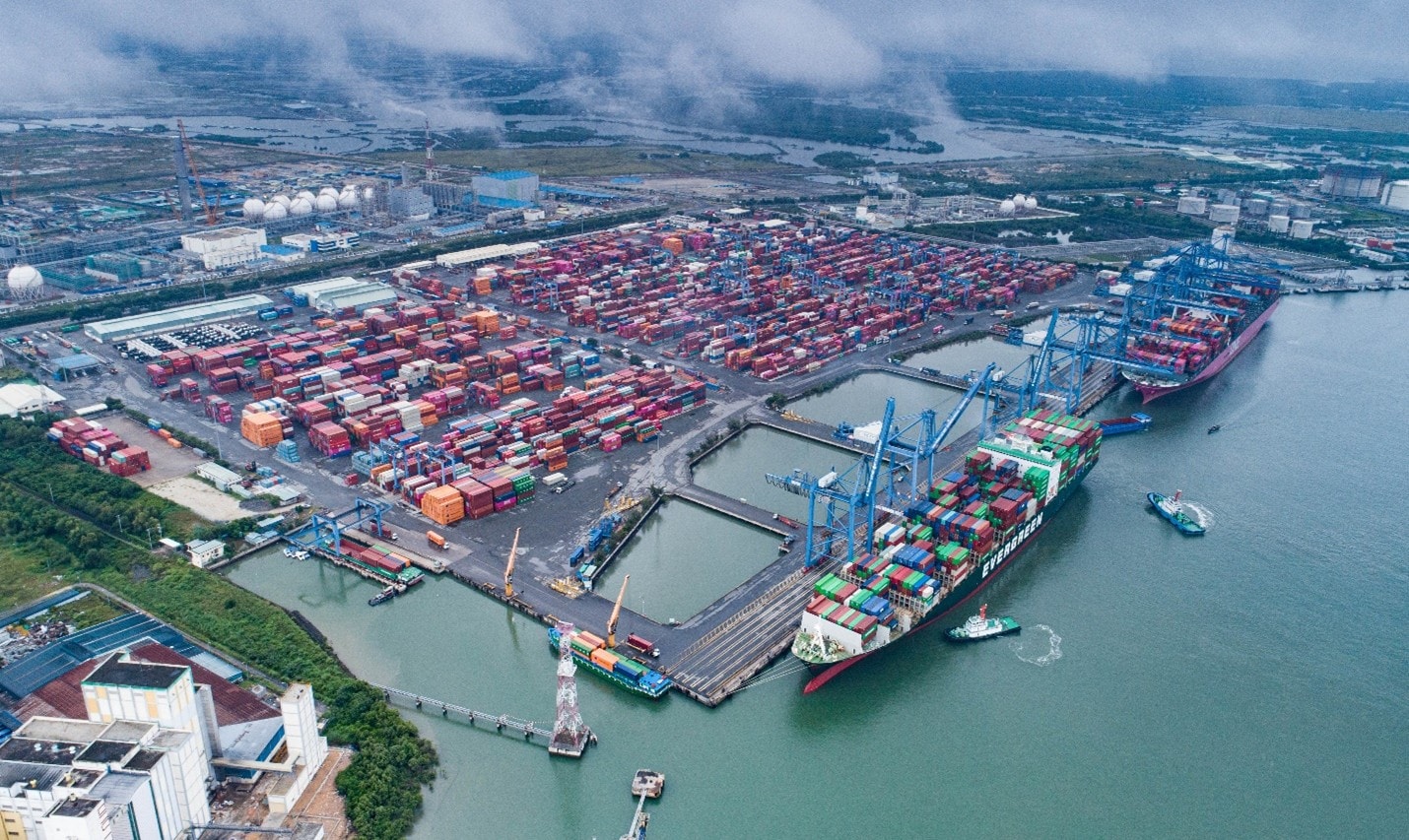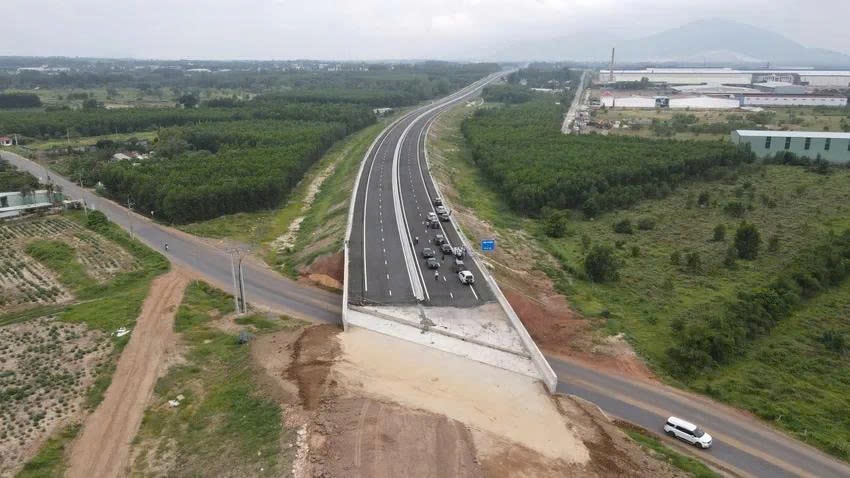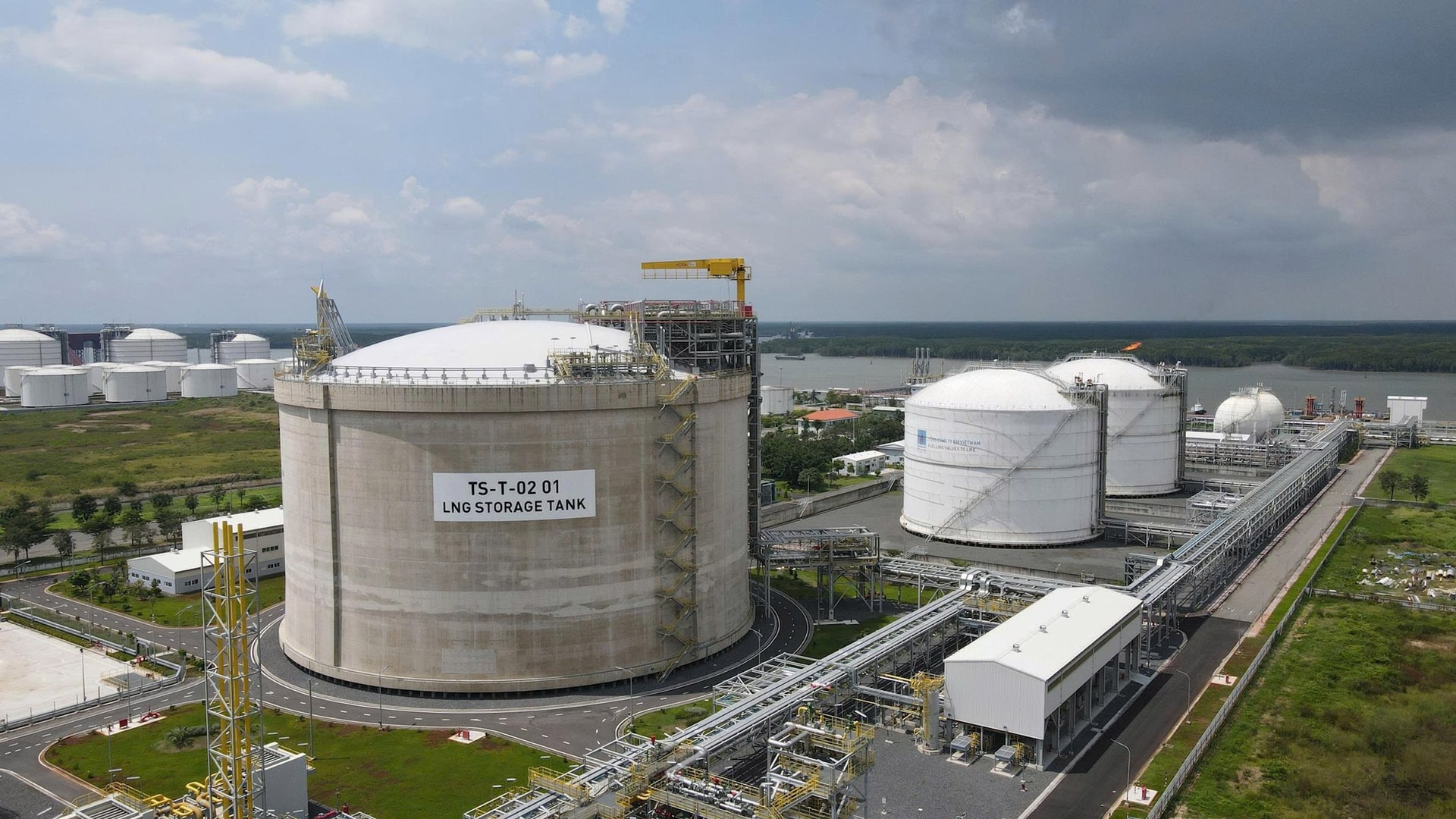Ba Ria - Vung Tau area (HCM city): A prime destination for FDI in Vietnam
Ba Ria - Vung Tau, part of the Ho Chi Minh City metropolitan area, is emerging as one of Vietnam’s most appealing destinations for foreign direct investment (FDI).

Ba Ria - Vung Tau is evolving into a regional industrial, port, and logistics hub, playing a vital role in Vietnam’s global supply chains.
An increasingly attractive magnet for foreign investors
Strategically located at the gateway of the Southeast region, it boasts the deep-water seaport system of Cai Mep - Thi Vai, one of the major transshipment hubs in the Asia-Pacific. This geographical advantage, combined with well-developed infrastructure, has significantly boosted the province's logistics appeal.
The area is also home to synchronized transport systems, including National Highway 51, the Bien Hoa - Vung Tau Expressway, Long Thanh International Airport (under construction), and coastal roads. These facilitate seamless connectivity and enhance Ba Ria - Vung Tau’s logistics potential.
Ba Ria - Vung Tau has adopted a selective industrial development strategy, focusing on supporting industries, high-tech manufacturing, clean energy, and petrochemicals—sectors aligned with the current shifts in global FDI trends. The investment environment is open and transparent, with clear incentive policies and strong administrative reforms to support investors from concept to execution.
Currently, the region prioritizes attracting FDI in high-tech sectors, supporting industries, green and environmentally friendly manufacturing, and projects with high added value and technology transfer potential. Strategic focus is also placed on logistics, seaport development, renewable energy, and smart urban planning.
According to Nguyen Van Tho, Standing Vice Chairman of the Ho Chi Minh City People's Committee, the city is committed to "accompanying businesses," by accelerating administrative reforms, reducing licensing times, and maintaining regular dialogue with investors to promptly resolve issues.
Modern industrial and export processing zones are being developed with comprehensive technical and social infrastructure, including worker housing, logistics centers, and medical-educational services—a key factor valued by many investors.
With its current momentum, Ba Ria - Vung Tau is evolving into a regional industrial, port, and logistics hub, playing a vital role in Vietnam’s global supply chains.

Strategic Advantages Setting Ba Ria - Vung Tau Apart
Positioned within Vietnam’s Southern Key Economic Region, the province is close to major production and financial centers and is home to Cai Mep - Thi Vai deep-sea port, a global gateway. Key infrastructure projects include the Bien Hoa - Vung Tau Expressway, Long Thanh Airport, Phuoc An Bridge, DT 994 Road to Cai Mep Port, and the 84-kilometer Bien Hoa - Vung Tau railway. The area is also developing the largest cruise port in Southern Vietnam.
The Cai Mep LNG Terminal, Vietnam’s second of its kind, is now operational and expected to supply gas to the Hiep Phuoc power plants by late 2025. Ba Ria - Vung Tau currently hosts 15 industrial parks covering more than 8,400 hectares, with occupancy rates exceeding 65%, all situated close to key transport arteries and seaports.
Ba Ria - Vung Tau does not seek FDI at any cost. Instead, it targets high-quality, high-tech, high-value, and environmentally friendly projects. With abundant clean land, competitive leasing rates, and pro-green policies, the area offers fertile ground for modern industry and logistics.
A national pillar in Vietnam’s FDI strategy
In Vietnam’s FDI strategy toward 2030, Ba Ria - Vung Tau plays a pivotal role in industrial, port, and logistics development. Designated as a hub for heavy industry, international port services, and logistics, the province aligns perfectly with global FDI relocation trends.
As FDI enterprises seek alternatives to large urban centers due to high costs and limited space, Ba Ria - Vung Tau has become a top choice—especially in clean energy, supporting industries, petrochemicals, manufacturing, and logistics.

Previously a supporting zone for Ho Chi Minh City and Dong Nai, the region is now rising as an independent growth pole. Post-merger, Ba Ria - Vung Tau is central to the government’s FDI vision, particularly in shaping coastal economic zones, smart port cities, and sustainable urban-industrial ecosystems.
With billions of dollars in annual FDI, vast development space, and a sustainability-driven approach, Ba Ria - Vung Tau meets the rigorous demands of global investors in an increasingly competitive region.
Cai Mep - Thi Vai Port is one of only 19 global ports that can handle 200,000-ton vessels, offering a major advantage for international logistics. The province actively promotes investment in high-value, environmentally sustainable sectors such as manufacturing, logistics, marine economy, high-end tourism, renewable energy, wind power equipment, and petrochemicals.
Major investments include a $5.1 billion petrochemical complex, a $1.3 billion Hyosung polypropylene and LPG plant, and a $1 billion wind power equipment manufacturing project.
Ba Ria - Vung Tau Area (Ho Chi Minh City) stands out with its strategic location, advanced seaport and transport infrastructure, transparent policy environment, and long-term investment vision. It is undoubtedly one of Vietnam’s most promising FDI destinations for high-tech, green, and value-added foreign investments.








